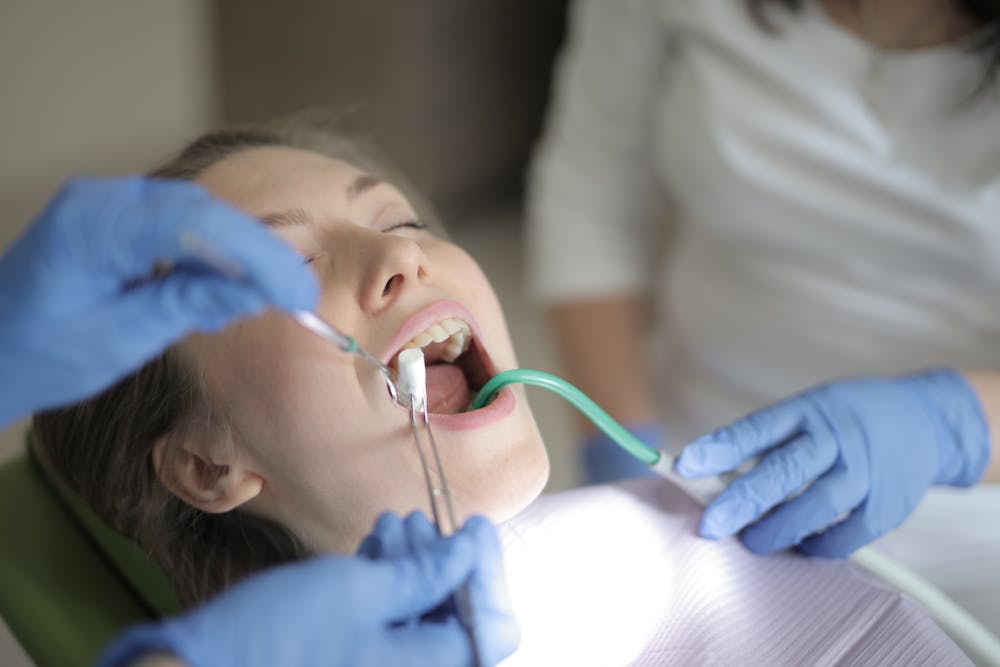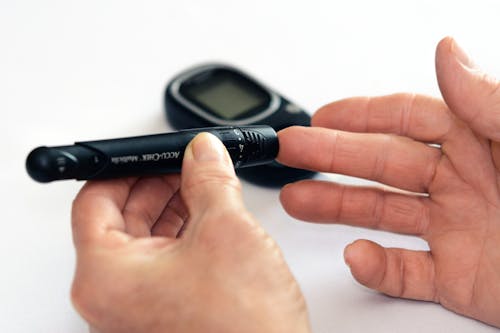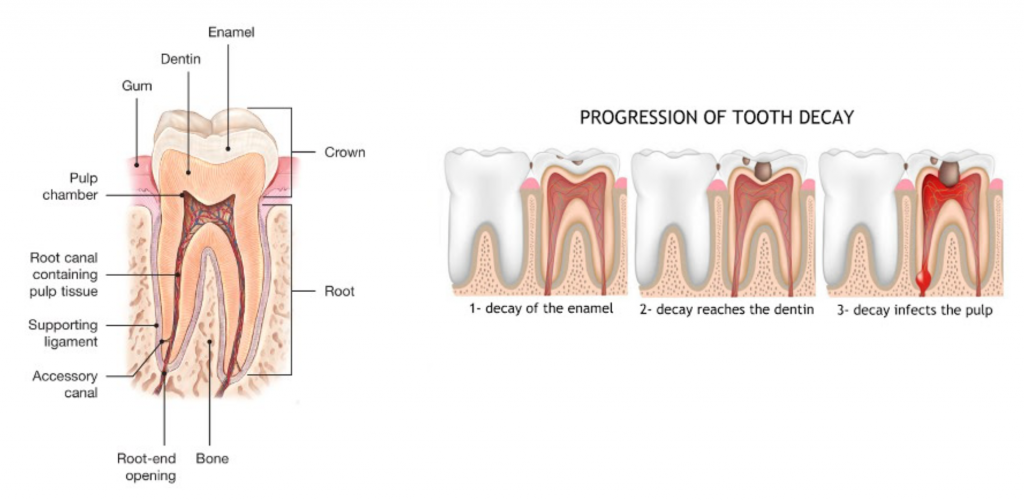Let your smile
Make a lasting
impression
The dental office that helps you smile better, feel better, and get better. It all starts here. Call us today!
Schedule Your AppointmentAbout Energetic Smile

Experienced Dental Care
We believe in delivering only the best quality of dental care. We are proud to serve our community and deliver this care while prioritizing your health and comfort.
Our doctors are acclaimed family and cosmetic dentists, who use their advanced training and compassion to help each of our patients achieve their dream smiles.
At Energetic Smile Family Dental, our accomplished dental team believe each of our patients deserve only the best!

Innovative Technology
We bring the latest technology, combined with comfort and care, to every patient, every time. We are proud to use state-of-the-art equipment.
You will find everything from our imaging technology to our materials to be cutting edge. We want you to be confident in putting your dental health in our hands!
We proudly offer Low-Dose 3D X-Rays, Guided Surgeries, and 4K Imaging! Our team of cosmetic and family dentists will work with you to meet all of your dental care needs including cleanings, fillings, crowns, whitening, veneers, and much more!

5-Star Rated Patient Care
You will feel at home with our friendly dentists and staff. Our goal is to create your dental home where we can help you get to a healthier and more Energetic Smile.
Whether you’d like headphones to tune out of your appointments, or essential oils to help ease your nerves, our friendly staff is happy to help.
Come meet our doctors and friendly staff at our newest Brea dental office, just a minute away from the beautiful Downtown Brea!
Virtual
Consultation
How does it Work?
Energetic Smile Services
The Mouth-Body Connection
More and more studies are showing that oral health and general health are more linked than we had previously thought. This certainly makes sense when you think about ...
The Mouth-Body Connection
Oral Surgery
We always try to save a tooth whenever possible. If a tooth is not able to be saved, an extraction is recommended. Sometimes, wisdom teeth are recommended for extract...
Oral Surgery
Root Canal Therapy
Root canal therapy is recommended when the nerve of the tooth has been damaged. It can be damaged by trauma, a large cavity, or fracture of the tooth. Inside your too...
Root Canal Therapy
Cleanings, Deep Cleanings & More
Even the best brushing and flossing at home will leave something behind. After 6 months, there is some accumulation that develops on your teeth that you just can’t ...
Cleanings, Deep Cleanings & More
Invisalign
Invisalign® is a fast, esthetic approach to braces. A series of custom-made clear aligners are worn, and under the care of your dentist, teeth are moved into positio...
Invisalign
Bridges
Bridging the Dental Gap A bridge is a treatment option for someone who is missing a tooth or someone with a gap in between their teeth. It literally "bridges the gap...
Bridges
Crowns
A crown is a tooth-shaped “cap” that is placed over a tooth. Our top-quality crowns are metal-free, and are made from strong biocompatible materials that have a n...
Crowns
Dental Implants
Guided Implant Surgery Dental implants are the number one recommended treatment option for replacing missing teeth. The reason for this is that a dental implant is t...
Dental Implants
Whitening
Everyone dreams achieving a sparkling white smile…but where do you start? Energetic Smile Family Dental offers a range of professional whitening products and services ...
Whitening
Cosmetic Dentistry
Over time, our teeth withstand a lot of forces with all the work they put in for us from day-to-day eating and drinking. This can lead to discoloration as well as chipp...
Cosmetic Dentistry
Snap On Dentures
Do you have dentures? Or know someone who does? If so, you’ll be familiar with the stress and inconvenience that dentures can bring. They are definitely better than b...
Snap On Dentures
The All-on-Four Denture Solution
Dentures are no fun – just ask anyone who has them. They are a great alternative to having no teeth at all, but since dental implant technology has taken off in the 20...
The All-on-Four Denture Solution
The Mouth-Body Connection
More and more studies are showing that oral health and general health are more linked than we had previously thought. This certainly makes sense when you think about it, everything is connected after all!
Bacteria from the mouth can cause infection in other areas of the body, even more so when the immune system has been compromised by disease or medical treatments. The mouth is home to hundreds of different types of bacteria. Many help to maintain a healthy mouth, while others are linked with disease.

Every time you swallow, these bacteria are introduced to the rest of the body. If you have these “bad bacteria” in your mouth, you are exposing the rest of your body to inflammation. Inflammation is a major risk factor in developing disease.

Is it Ever Too Late to Start Flossing?
The American Dental Association and American Heart Association have confirmed that there is a link between gum disease and heart disease. People who have one of these diseases are more likely to have the other. In fact, research has shown that those with gum disease have two to three times the chance of having a heart attack. So routine flossing and dental visits may literally help you reduce the risk of heart disease!
Diabetes and Gums

There has also been a link proven between gum disease and diabetes. People with diabetes are at increased risk for developing gum disease, and improving the health of your gums can improve your control of your blood sugar! Gum disease has also been linked to other systemic illnesses including osteoporosis, respiratory illnesses, cancer, and rheumatoid arthritis.

At Energetic Smile, we remain at the cutting edge of this research. Our goal is to help you get to a healthier you! Ask your dental team about these effects at your next appointment. Get healthier with us today! It all starts by calling us at (714) 594-7009.
The Mouth-Body Connection
Oral Surgery
We always try to save a tooth whenever possible. If a tooth is not able to be saved, an extraction is recommended. Sometimes, wisdom teeth are recommended for extraction if they are likely to cause problems in the future.
At Energetic Smile, our dentists have completed training in advanced surgical procedures. Therefore, we are one of the few offices able to provide oral surgery services in-house. Our office is also equipped with a digital, three-dimensional scanner called a Cone Beam CT, which allows our dentists to thoroughly plan a predictable and safe surgery.
When to Pull a Tooth
Excessive tooth decay, infection, fracture, or crowding are all reasons a tooth may require extraction. If a tooth has gross decay, infection, or is severely broken down, it may not be able to be saved and may require extraction. In addition, patients considering orthodontic treatment may require removal of a few teeth to make room for the proper alignment of their teeth. Also, patients who are medically compromised or who require an organ transplant or chemotherapy may require extraction of compromised teeth. This is recommended when it is the best way to keep their mouths healthy before and during treatment.
Types of Oral Surgery
Simple Extraction
First, local anesthesia is administered to numb your tooth and the surrounding area. After this, you should only feel pressure, not pain, during the procedure. An instrument called an elevator is then used to loosen the ligaments that hold the tooth in place. The tooth is then moved back and forth until the tooth separates from the ligaments holding it in place.
Surgical Extraction
After local anesthesia is administered to numb the area, the dentist will push back your gums to better visualize the tooth and surrounding structures. The dentist may need to remove some bone or cut the tooth into pieces to remove it. A dental instrument called an elevator is used to loosen the ligaments that hold the tooth in place, and then the tooth is pushed until it comes out. Depending on your gums, a few sutures may be placed to close the surgical site.
Impacted Tooth Extraction
A tooth is impacted when it is has not fully erupted though the gums. The procedure for an impacted tooth extraction is very similar to a surgical extraction, except a larger incision and more bone removal may be required.
History of Wisdom Teeth: Do they need to be pulled?
Wisdom teeth, also called third molars, are the last set of permanent teeth to erupt and are the ones that are used the least. They are located very far back in the mouth, and thus are more difficult to reach and keep clean. It is important to note that over the course of human evolution, the human jaw has shrunk in size, yet still has 32 teeth.
Let’s go back, millions of years ago, to our prehistoric ancestors. The early man’s jaw was larger and more prominent, because the teeth and the jaw were used for more strenuous activities. Our ancestors would have to cut through more rough meats. The mouth, jaw, and teeth were used primarily for tearing and consuming prey. Over time, as our roles and dietary habits have shifted, the brain has enlarged and jaw has shrunk. That is why, nowadays, there is often not enough room in the jaw for the wisdom teeth and they tend to cause more problems.

Your dentist will evaluate the status of your wisdom teeth with a panoramic radiograph to see if there is enough room for them or not. If your wisdom tooth requires extraction, the technique used will either be simple extraction or surgical extraction depending on if it is impacted or not.
Full Mouth Extraction
Sometimes, the remaining teeth are too weak due to cavities, fracture, or gum disease. When this happens, it may be recommended to get them all removed. When this is done, an immediate denture is typically recommended. This kind of denture does not have a perfect fit, but it allows you to leave the office – even after a full mouth extraction – with a smile! After healing, a well-fitting prosthesis is planned.
Alveoloplasty
Sometimes, during or after tooth extractions, parts of the jawbone can have sharp or rough edges. This is more common when multiple teeth are removed. This is a simple procedure where the jawbone is smoothed. This can be done at the time of the extraction, or it may be done after some healing has happened. Alveoloplasty is especially necessary when the area is being prepared for a denture.
Bone Graft
After the tooth is gently removed, a bone graft is placed in the site to preserve the shape of the socket and to help prevent bone loss from occurring at the site. If an implant or a bridge is being planned for the site, this becomes especially important. Not doing a bone graft makes it more likely to not have enough bone when it comes time to place the implant.
Long Story Short
We know that no one wants to have a tooth pulled. That is why we strive to make these appointments – like all of our appointments – especially low stress. To learn more, book an appointment with us today!
Oral Surgery
Root Canal Therapy
Root canal therapy is recommended when the nerve of the tooth has been damaged. It can be damaged by trauma, a large cavity, or fracture of the tooth.
Inside your tooth, beneath the hard, white outer layer of enamel is softer yellow layer called dentin (which appears orange in the picture below); then after that is the innermost layer of soft tissue called the nerve or pulp (which appears dark red in the picture below). Once decay has reached the pulp, bacteria can travel down the root into the bone and spread to other areas of the body.

How do I know if I need a root canal?
Some common symptoms indicating a possible need for a root canal include:
- Severe tooth pain that wakes you up at night
- Severe tooth pain when eating or when you put pressure on the area
- Sensitivity to hot and cold that lingers for extended periods of time after the hot or cold stimulus is removed
- Swelling or bump in the gums near the area of tooth pain
- Pus or drainage in the mouth
- Darkening of the tooth
Be sure to see your dentist if you experience any of these symptoms. Sometimes your tooth can need a root canal without any of these warning signs. These cases can be revealed during routine check-ups with your dental provider via digital x-ray. Your dentist can track the depth of your cavities via x-rays.
I need a root canal. Now what?
Many patients are scared at the idea of getting a root canal and ask if the tooth can just be pulled. While that would relieve the pain, there is nothing like your natural tooth! A root canal is a great option that allows you to save your tooth.
How do root canals work?
A tooth needs a root canal usually because of a large cavity or crack that has reached the pulp. The cavity or crack is removed with a dental handpiece. Then the infected pulpal tissue as well as the entire nerve of the tooth is removed. Once a permanent tooth erupts fully through the gums, the nerve serves no real purpose other than to sense heat or cold or other stimuli; therefore, removing the nerve is the standard of care in the treating teeth with decay that has reached the pulp. The pulp chamber and root canals of your tooth are then cleaned, medicated, and sealed. A crown is then often recommended to protect and strengthen the tooth. After a root canal treatment and a crown, the tooth often functions just like all of your other teeth!
Does it hurt??
Contrary to popular belief, under the care of our experienced team, root canals are not a painful procedure! In fact, many patients who are in pain prior to the root canal procedure, leave the office in no pain!
A local anesthetic is applied to your tooth and the surrounding area. Then a protective sheet called a rubber dam is placed over your tooth to isolate the tooth to keep it nice and clean throughout to procedure and to protect the airway during the procedure. An opening is made through your tooth to access the pulp chamber and the nerve. The canals are then cleaned and shaped and filled with a biocompatible material known as gutta percha. Then a filling is placed on your tooth followed by a crown.
It is a multi-step procedure that requires multiple appointments, but entirely worth it to save your tooth!
Is something aching? Be sure to ask your knowledgeable team at Energetic Smile to see if root canal therapy can help! Call us today at (714) 594-7009 – don’t have one more painful night!
Root Canal Therapy
Cleanings, Deep Cleanings & More
Even the best brushing and flossing at home will leave something behind. After 6 months, there is some accumulation that develops on your teeth that you just can’t remove without the help of a dental professional. We can access all the nooks and crannies in your teeth that may be hard for you to see or reach! That is why it is important to get your teeth professionally regularly.
Getting Your Teeth Cleaned
A professional dental cleaning will remove the plaque, tartar, and surface stain from your teeth. Plaque is the sticky colony of food and bacteria that attach to a tooth and release toxins that can damage the tooth and cause inflammation in the gums. If this plaque isn’t removed it can harden into deposits known as tartar or calculus which cannot be removed from simple brushing and flossing. We have special instruments we use to remove these deposits. After all of the deposits are removed your teeth are polished to give you a nice and clean feel as well as smooth tooth surface to make it harder for plaque to stick to!
If tartar is left underneath or near the gums for a long period of time, the body’s immune system responds, and the gums get puffy and swollen. This is known as gingivitis. If the plaque is still not removed, the immune system will respond even more, and the bone supporting your tooth will start to resorb back away from the tartar. Once bone loss begins, the gingivitis has progressed to periodontitis. Your dentist can evaluate on your x-rays if there is evidence of bone loss.
Deep Cleaning
If tartar has formed underneath the gums, your dentist may recommend a procedure called scaling and root planing. Some people call this a deep cleaning. It is recommended that you get numb for this procedure to make you more comfortable. During this procedure, the tartar and bacteria from under your gums is cleaned off.
Periodontal Maintenance
After 4-6 weeks of healing, your gums will be re-checked. If improvements are noted in your pocket measurements, this is great news! We will just monitor your gums with follow-up cleanings called Periodontal Maintenances which will be recommended every 3, 4, or 6 months, depending on the status of your gums. If improvement is not noted, you may be referred to a gum specialist, known as a periodontist. The periodontist can then evaluate your periodontal condition to see what treatment is best to control your gum disease. The periodontist may recommend periodontal surgery to eliminate infection in the bone or to regenerate lost bone.
Regular dental visits and diligent home care (flossing too!) will help to ward off periodontal disease before it starts! Ask your Energetic Smile team for more information.
Cleanings, Deep Cleanings & More
Invisalign
Invisalign® is a fast, esthetic approach to braces. A series of custom-made clear aligners are worn, and under the care of your dentist, teeth are moved into position safely and efficiently. Under our direct supervision, Invisalign® is your key to straighter teeth – no metal, no wires…just beautiful smiles!
Schedule an appointment with our team today to see if you are a candidate for Invisalign®. Invisalign® is great for those patients that want a straighter smile but do not want to deal with the hassle of traditional braces. This is also a great option for patients who have already undergone orthodontic treatment and want small refinements or have noticed shifting because they either lost their retainers or can no longer can fit into them.
How Long Does Invisalign® Take?
A series of thin and clear trays are custom fabricated to fit your teeth and create minor movements. Each aligner is switched out every 1-3 weeks and these aligners push the teeth into better alignment. Invisalign requires a high level of patient compliance. Patients must wear the trays for 20-22 hours a day, removing them only to eat and brush their teeth. Depending on what tooth movements are being achieved, total treatment can be anywhere from 2 months to 2 years, with most being about a year.
Invisalign® Attachments
Sometimes Invisalign® treatment will incorporate tooth-colored attachments on specific teeth. This allows the aligners to move these teeth in a more precise and efficient way, than without the attachments. These attachments can only be placed in the dental office by your favorite dental professional!
If you think Invisalign® is right for you, call and schedule your appointment with us today!
The first step is to schedule a consultation with our experienced dentists. Call us today at 714.594.7009, and let’s get started!
Invisalign
Bridges
Bridging the Dental Gap
A bridge is a treatment option for someone who is missing a tooth or someone with a gap in between their teeth. It literally "bridges the gap" in between teeth. These are recommended as an alternative to implants. A bridge is comprised of two crowns on either side of the missing tooth. A false tooth, known as a pontic, is attached to the other crowns to create one piece that is cemented to the adjacent teeth.
Our bridges are made only of the highest quality of material and are an excellent non-surgical alternative to implants.
What Does a Bridge Do?
- Fill in spaces and restore your smile
- Restore the ability to properly chew or speak
- Distribute the forces of your bite properly
- Prevent shifting of teeth
- Maintain the shape of your face
What is the process for getting a bridge?
During the first visit, the teeth adjacent to the missing tooth, called the abutment teeth are prepared for crowns. Preparation requires removing some of the enamel to recontour the teeth to make room for crowns to fit on top. After the teeth are prepared, an impression is made of the teeth to custom make your bridge to fit and match your teeth. A temporary bridge will then be made to protect your teeth while your final bridge is being made.
During the next visit, your temporary bridge is removed and your new bridge is tried in and adjusted to ensure proper fit. If the fit looks good, the bridge is cemented into place and you have your missing tooth replaced!
How to Clean Under a Dental Bridge
Like all dental work, it is important to keep it clean so it can last for years to come. If kept clean, bridges can for last 10-20 years! Your dentist will show you how to use a floss threader and Superfloss to clean under it to keep your gums and teeth around the bridge healthy and strong!
For more information, or to schedule a consult, book an appointment with us today!
Bridges
Crowns
A crown is a tooth-shaped “cap” that is placed over a tooth. Our top-quality crowns are metal-free, and are made from strong biocompatible materials that have a natural look and feel.
When would I need a crown?
- To restore an extensively decayed tooth
- To cover and support a tooth with a large filling where these is not much natural tooth structure left
- To protect a weak tooth from fracturing, especially root canal treated teeth
- To hold together parts of a cracked tooth
- To cover an already broken or severely worn-down tooth
- To cover severely discolored teeth for cosmetic improvement
- To cover a dental implant
Does Getting a Crown Hurt? What's it Like?
The great news is that getting a crown doesn't hurt! It will feel like getting a longer filling. Your tooth is first numbed with local anesthesia. Preparation requires removing some of the enamel to recontour the tooth to make room for crown to fit on top. After the tooth is prepared, an impression is made of the tooth which the lab will use to custom make your crown to fit and match your teeth. A temporary crown will then be made to protect your tooth while your final crown is being made.
During your second visit, your temporary crown will be removed and your new crown tried in and adjusted to ensure proper fit. If the fit looks good, the crown is cemented into place!
How Long Do Crowns Last?
Be sure to keep it clean with the proper brushing and flossing technique. With proper care, you can expect your crown to last anywhere from 5-15 years...and we've seen them last much longer!
Feel free to call us today, or request your appointment now. Our friendly team is here to help you!
Crowns
Dental Implants
Guided Implant Surgery
Dental implants are the number one recommended treatment option for replacing missing teeth. The reason for this is that a dental implant is the tooth replacement option that is most similar to your natural tooth. Unlike with bridges, your dentist does not have to touch the adjacent teeth and you do not have to struggle to clean under and around it. Also, dental implants cannot get cavities! Implants are also a great option to help stabilize ill-fitting dentures.
At Energetic Smile, we have a state-of-the-art, digital, three-dimensional scanning system called a cone beam CT, or cone beam 3D imaging. We use this scan to help determine the optimum placement of the implant, so that we can plan and guide your implant surgery.
How do Dental Implants Work?
Dental implants are made with titanium and placed into the jaw bone to mimic a tooth root. After the implant is placed in the bone, it needs several months to lock into or integrate properly into the bone. Then a second piece called an abutment is placed. Next, an impression can be taken of the implant for the lab to use to fabricate a custom-made crown to match your teeth. A few weeks after the impression, you can return for the final visit where the crown is tried in and adjusted to ensure proper fit. Then you can leave with your new tooth!
How Long do Dental Implants Last?
It takes time to complete the implant, but once the implant is completed, it is the longest lasting and most effective replacement of missing teeth available today.
It is important to brush and floss these as normal to ensure your gums and bone stay healthy so that this implant can last a lifetime!
Dr. Lena DeBaz and her team at Energetic Smile are happy to consult with you regarding dental implants, their cost, and to determine if you are a candidate for them. Ask us for more information if dental implants are the right solution for you! To schedule a consultation, call us today at 714.594.7009.
Dental Implants
Whitening
Everyone dreams achieving a sparkling white smile…but where do you start? Energetic Smile Family Dental offers a range of professional whitening products and services that will quickly and safely get you whiter teeth for a brighter – and more Energetic – smile.
Whitening isn’t for everyone though. At your dental visit, Dr. Lena DeBaz will evaluate your smile and your teeth to see if whitening is a good option
Whitening
Cosmetic Dentistry
Over time, our teeth withstand a lot of forces with all the work they put in for us from day-to-day eating and drinking. This can lead to discoloration as well as chipping or cracking of front teeth. Good news is that there is a wide variety of options available in cosmetic dentistry to fix this wear and tear. From Invisalign to whitening to veneers to fillings and crowns, you have an array of options available to you here at Energetic Smile. We will work with you as we listen to your concerns and your goals to make the best cosmetic plan for you!
For more information about Invisalign, whitening, and crowns please see their respective pages under services!
What is a Veneer?
A veneer is a thin, custom-made shell, usually made out of porcelain, designed to cover the front surface of your tooth to improve its appearance. A veneer may be indicated for teeth that are worn down or chipped, discolored, misaligned, or irregularly shaped. It can sometimes be used to fill a small gap noted between two front teeth.
Types of Veneers
Direct Composite Veneers: Sometimes, esthetic enhancement can be achieved by adding tooth colored filling material directly over the entire front surface of the tooth. It can sometimes be more difficult to sculpt ideal contour directly onto a patient’s tooth than it is to produce the ideal shape in the lab with an indirect veneer; however, it is a good way to get an esthetic enhancement without having to remove tooth structure.
Porcelain Veneers: After local anesthetic is applied to your tooth, a small amount of enamel is removed from the front and sometimes sides of your tooth to make room for the veneer. An impression is then taken of the tooth; the lab uses this to make a custom-made veneer to ideal contour for your smile. A temporary veneer is made for you to wear while the lab fabricates your veneer. At your next appointment, the temporary veneer is removed and your new veneer is tried in and adjusted to ensure proper fit. We evaluate the esthetics together to see if you are satisfied. If any adjustments are required, the veneer is sent back to the lab to be adjusted. If you are satisfied and the dentist agrees, the veneer is cemented! With good care, a veneer can last 5-10 years!
To change the size or shape of your teeth, we offer several restorative options. Ask a team member which is right for you to keep your smile looking energetic!
Cosmetic Dentistry
Snap On Dentures
Do you have dentures?
Or know someone who does?
If so, you’ll be familiar with the stress and inconvenience that dentures can bring. They are definitely better than being without teeth, but there are better solutions out there!
Snap On Dentures
The All-on-Four Denture Solution
Dentures are no fun – just ask anyone who has them. They are a great alternative to having no teeth at all, but since dental implant technology has taken off in the 20th century, there are now much better options!
The All-on-Four Denture Solution
Sensitivity?
Discomfort?
Embarrassed to smile?
Offering same-day appointments, you don’t have to experience one more painful or embarrassing night!
Meet Our Team

Dr. John Chung, DMD
Dr. John Chung completed his undergraduate studies at the University of California, San Diego, where he earned a bachelor’s degree in Biochemistry. He then went on to pursue a master’s degree in Biomedical Science at Barry University in North Miami Beach, Florida before pursuing his Doctor of Dental Medicine degree at Nova Southern University. He has been working in Southern California since his graduation and has a commitment to staying current with the latest advancement in dental technology and techniques.
Dr. John’s positive and gentle character with the personality to strive for perfection, allows him to treat patients with sincerity and with the highest quality dental work. He is passionate about conservative and preventative dentistry and strives to expand his dental expertise through various continuing education courses and continues to keep up with the most recent studies to deliver comprehensive dental care to every patient.
He lives in Brea with his newly wed wife and his black and white tuxedo cat named Oreo. He enjoys playing tennis, golf and hiking in his spare time.


Dr. Sanam Shakibi, DDS
Dr. Sanam Shakibi earned her Bachelor of Science and her Doctorate of Dental Surgery at The Ohio State University. She then attended advanced training in general practice residency at St. Luke’s hospital in Cleveland, Ohio.
She has practiced dentistry in Ohio, and Washington, and has made California her permanent residence.
She actively takes continuing educational courses to keep herself updated in modern dentistry and learn about the newest technologies.
Dr. Shakibi is gentle and caring. She strives to provide the best quality care possible for her patients and her main goal is to create healthy, beautiful, and Energetic Smiles.
During her free time, she loves painting, creating artworks, watching movies, and hiking.


Karina Rosas
Karina graduated from the University of Southern California with a Bachelor of Science degree in Dental Hygiene. Her favorite part of dentistry is giving her patients a personalized recommendation for the best tools and techniques to maintain their oral health.
Outside of the office, Karina enjoys hiking with her dog. She also loves cooking and eating with her family and friends.


Stacy Leavitt
Stacy graduated from West Coast University with a Bachelor of Science degree in Dental Hygiene. She went into her field excited to help others and through the years grew more passionate than she thought possible.
As a health care provider it is her goal to serve her patients according to their individual needs while educating them on the link between oral and systemic health, especially since the mouth is the gateway to the rest of the body.
Her promise to her patients is to treat them and advise them as if they were her own family while listening to their needs and concerns to make their experience as comfortable as possible.
In her down time, Stacy loves cuddling up with her two dogs and cat who she considers to be her very own children. She enjoys getting outdoors for fresh air, more so if she can take her dog with her. She also has a wonderful family with beautiful nieces and nephews whom she loves spending time with.


Jamileth Huerta


Julie Cruz
Julie is our office manager. Julie currently lives in the city of Santa Ana with her husband, Lupe, and her two beautiful daughters, Giselle and Bianca.
She began her dental career 18 years ago as a dental assistant through an ROP program that taught her the humble beginnings of this profession. After 5 years of working in the back office, she then transitioned to be an office team leader.
One of her biggest passions is to lead others to accomplish and discover their true potential. It brings her pride and joy to see people growing learning to become a better version of themselves both in the work field and as people.
To be able to see a growing healthy team providing top-notch customer satisfaction is priceless. She believes that delivering a service makes patients remember us personally and create long lasting relationships not only professionally but personally.
Her goal is to help the organization be at its best by delivering a world-class patient experience. She is excited to be at Energetic Smile; she believes the team has the core values that all patients are looking for. It is not about us, it is about the patient, YOU.


Paola Orico
Paola is our Treatment Coordinator who will do her best to help each and every patient achieve their dream smiles. She is an enthusiastic learner and team member who enjoys giving our patients the best care and treatment.
She has been in the dental field for two years. During this time, she has taken on many roles and became well-versed within different departments.
During her time off, when she’s not in the office, Paola enjoys spending her time with both her family and furry friends. She likes to take her dogs on hikes, and embark on new and exciting adventures with her family.









